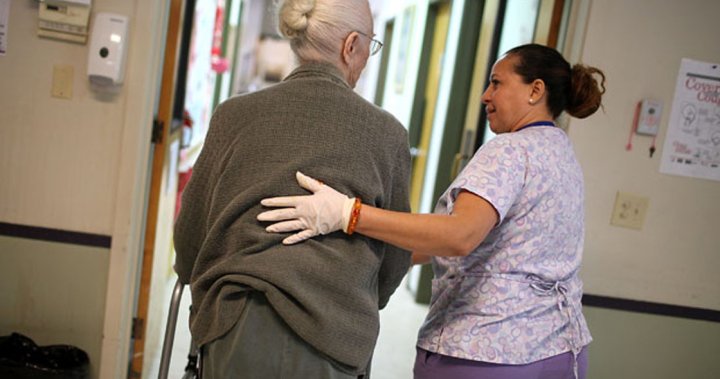While topics such as affordability and education have been given a lot of weight throughout the Saskatchewan election campaigns, perhaps the heaviest of them all has been health care.
Coming out of the COVID-19 pandemic, Saskatchewan’s health-care scene has gone through a very difficult time.
Hospital wait times, the lack of family doctors and specialists, and the call for help from nurses feeling burnt out are just a few of the issues for residents.
Doctor shortage
Morgana Scully has been dealing with chronic illnesses since she was first diagnosed at 17 years old. Now, she has been told her most recent diagnosis would mean a trip outside of the province.
“I have Ehlers-Danlos syndrome, which means that every joint in my body can dislocate, which causes a lot of pain. And we don’t have specialists here that deal with it,” Scully said.
Scully is witnessing first-hand some of the issues affecting the health care system in Saskatchewan.
It has made her want to work towards a placement in med school.
“Right now we are in a really bad place,” she said. “Not just for primary care providers, but for our specialists and our emergency room doctors. We don’t have enough support.”
She isn’t the only person looking for care in the province.
Jeanie Dooley has been searching for a family doctor for well over a year.

Get daily National news
Get the day’s top news, political, economic, and current affairs headlines, delivered to your inbox once a day.
“Every time I hear a lead, typically by the time I call, they are not accepting anymore,” Dooley said. “Or I see it a day late and they’re already filled. Or if they are accepting, they have a waiting list.”
Dooley said doctors have told her those waiting lists have hundreds of people on them, and the wait could be 18 months or longer.
It’s just a snapshot of the ongoing struggle many in the province are facing when it comes to accessing primary care.
“A lot of people are really missing out on that (care) right now,” Adam Ogieglo, a family physician, said.
“And it’s not just young and healthy people (not receiving help). Doctors are increasingly seeing older individuals, people that have other health conditions that really need a primary provider that are that are going without care.”
Ogieglo said training more doctors and incentivizing the ones already in the province is a move forward to begin addressing the crisis.
“It’s a complex problem and it’s one that’s going to take some time to sort out. But I think it’s one that’s worth pursuing. And there are solutions that are worth pursuing.”
Rise of private health care
Saskatchewan is the birthplace of Medicare — the system of free, publicly-funded health care.
But when it was introduced in 1962, it faced a lot of controversy according to Steven Lewis, professor of health policy at Simon Fraser University.
“It divided the province, it was a war,” Lewis said. “The doctors went on strike.”
Now, however, the tables have turned. The public health-care system has been around ever since, and concerns over private clinics opening have become apparent.
It’s a controversial topic amongst professionals and voters.
“If you can’t hire enough nurses to staff all of the wards in the hospitals now or if you can’t keep the emergency rooms open in some places, why do you think you can magically produce personnel in these private clinics,” Lewis argued.
He said the nurses who go to work in private clinics often come from the hospitals, creating a domino effect within the system.
“I think arguably the personnel problems and the shortages get worse in the public system (when private is introduced,” Lewis said.
“What does the public system do to fill in? It starts hiring agency nurses and paying $250,000 or more in some provinces per nurse.”
Lewis believes those funds should be distributed across public health-care facilities.
Some political parties are leaning into private as a way to alleviate pressures. The Saskatchewan United Party, for example, is running their health-care platform on the idea.
“What we’re proposing to do is to move to a universal private public system,” Saskatchewan United Party leader Jon Hromek said.
“You have all the same coverage you have before, but services can be delivered by both the private sector and the public sector. That is a system that is more in line with Europe and the Scandinavian countries. It’s not a U.S.-style system at all.”
Election promises
When it comes to what the two main political parties are offering, both are promising to strengthen the industry.
Saskatchewan NDP Leader Carla Beck has promised to hire 800 new front-line health-care workers over four years if her party wins the upcoming provincial election.
The NDP said it would train, retain and hire more doctors, nurses and specialists by investing $1.1 billion in new health care funding.
The Saskatchewan Party platform has highlighted the $7.6 billion invested into health care in the province’s most recent budget — along with its Health and Human Resources Program, which has received $300 million since 2022.
The Sask. Party is also promising to increase the mental health and addictions funding by $34 million.
© 2024 Global News, a division of Corus Entertainment Inc.


